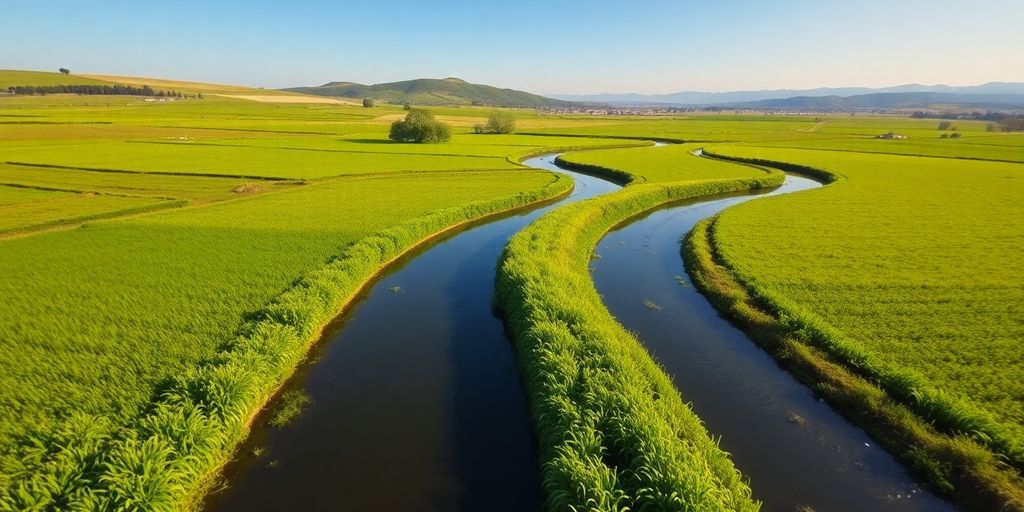Greece and Bulgaria have taken a significant step towards enhancing bilateral cooperation by signing a landmark agreement on water access from the Ardas River. This agreement, finalized on May 2, 2025, aims to secure a stable water supply for Greece’s Evros region, crucial for its agricultural sector.
Key Takeaways
- The agreement replaces a 60-year-old pact, ensuring water supply for five years.
- Bulgaria will provide water through its Arda dam system, supporting irrigation in Evros.
- Greece commits to modernizing its dam infrastructure and compensating Bulgaria for operational losses.
- The deal reflects a commitment to sustainable resource management and regional stability.
Background of the Agreement
The new Joint Declaration was signed by Greek Foreign Minister Giorgos Gerapetritis and Bulgarian Foreign Minister Georg Georgiev. It replaces a previous intergovernmental agreement from 1964, which had become outdated and insufficient to meet the current demands of the region.
The agreement was negotiated collaboratively by the foreign ministries of both countries, along with their respective ministries of environment, energy, and rural development. This comprehensive approach highlights the importance of cross-sector collaboration in addressing shared challenges.
Provisions of the Agreement
Under the terms of the agreement, several key provisions have been established:
- Water Supply Guarantee: Bulgaria will ensure a consistent water supply for irrigation in the Evros region for the next five years.
- Infrastructure Improvements: Greece will modernize its existing dam infrastructure and construct a new facility to enhance water storage and management.
- Compensation Mechanism: Greece will compensate Bulgaria for any operational losses incurred when water is released from the Arda dam for irrigation rather than electricity generation.
- Future Cooperation: The agreement is framed under EU cross-border cooperation guidelines, indicating a mutual intent to develop a permanent water management solution in the future.
Importance of the Agreement
This agreement is not just a legal document; it represents a commitment to sustainable resource management in the face of climate challenges. By ensuring a reliable water supply, both countries are taking proactive steps to support agricultural production in the Evros region, which is vital for local farmers and the economy.
Moreover, the deal fosters stronger ties between Athens and Sofia, paving the way for future collaborations on environmental and resource management issues. It sets a precedent for how neighboring countries can work together to manage shared natural resources effectively.
Conclusion
The signing of the water access agreement between Bulgaria and Greece marks a new chapter in their bilateral relations. By addressing critical water allocation issues, both nations are not only securing agricultural sustainability but also reinforcing their commitment to regional stability and cooperation. As they move forward, this agreement could serve as a model for other countries facing similar challenges in resource management.
Sources
- Greece And Bulgaria Seal Ardas River Water Agreement For 2025-2030, Greek City Times.
- Athens and Sofia seal deal over river access, eKathimerini.com.






